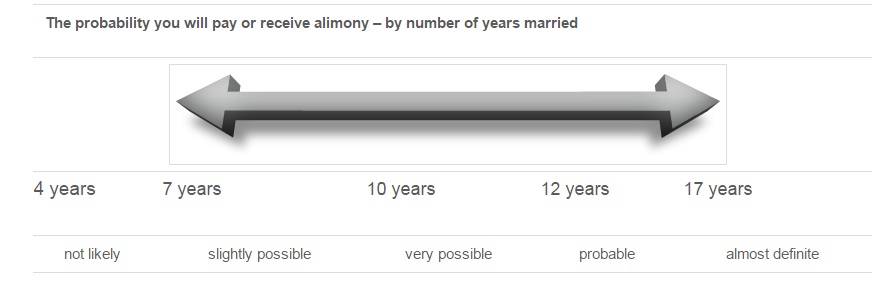Spousal Support Lawyer
 Family law involves some of the most important parts of anyone’s life: family and finances. When you’re forced to live on shakey financial ground, it almost always affects your family life.
Family law involves some of the most important parts of anyone’s life: family and finances. When you’re forced to live on shakey financial ground, it almost always affects your family life.
Spousal support, or alimony as it is commonly known, is an area that receives a lot of attention in the divorce process, in society, and in the media. Unlike child support, spousal support attorney in Tampa, Florida and the majority of other states is not calculated based on a predetermined mathematical formula.
Instead, judges consider a long list of factors contained in the Florida Statutes when deciding how much spousal support to grant and for how long.
Unlike child support, determination of alimony can often be a subjective and uncertain issue. Further, given the ongoing and ever-present discussion regarding Alimony Reform in Florida, the law regarding Alimony and Spousal Support is dynamic and ever-changing. No matter which side you’re on, spousal support can seem unfair, at times even arbitrary. For many recipient spouses, it doesn’t feel like enough to maintain their lifestyle before the divorce. And for those who pay, it can be an ongoing financial burden and a constant reminder of something they would like to put behind them.
We understand that these situations can be stressful and tense, but we always try to approach them in the most positive way possible and offer solutions and compromises to help keep the peace while also meeting clients’ goals. This is why we do everything we can to make sure our clients understand the law and how this type of support is calculated. Our spousal support attorney’s goal is to empower our clients to make informed decisions about their lives.
Our Tampa spousal support lawyers, who are knowledgable in Florida laws, also work very hard to ensure the people and families we represent walk away from the divorce process with a positive outlook for the future – something that is only possible when alimony matters are handled professionally and responsibly.
Alimony in Tampa, Florida
When courts award alimony, they are required to employ Florida Statute 61.08, which mandates consideration of multiple factors, primarily:
- The duration of the marriage.
- The spouses’ respective incomes and financial needs.
- The assets and overall financial status and situation of each spouse.
- The education of each spouse and ability to work and earn income.
- The health and medical needs of each spouse.
- The standard of living enjoyed before the divorce.
- Each spouse’s contributions to the marriage.
These factors help the court decide whether or not spousal support is appropriate and necessary, and the amount that should be granted. As you can see, this is a very subjective determination that is not based on a structured mathematical calculation.
In most cases, the first factor considered is the length of the marriage which is used in determining the appropriate duration of spousal support.
The Florida Statutes have created several types of Alimony. Each form serves a specific purpose and function, and is awarded and allocated primarily based on length of the marriage:
Temporary: This type of alimony is granted during the pendency of the divorce proceeding to ensure that both parties need for support is met during the litigation. Temporary alimony by definition ends when the divorce is final.
Bridge-the-gap: This type of support is granted in short-term marriages of less than 7 years, and is designed to help a recipient spouse transition from married to single life.
It fills in short-term financial needs while the recipient spouse re-trains or obtains skills or education needed in order to become self-sufficient. This type of support can’t exceed two years and is strictly limited in how and when it may be modified.
Rehabilitative: The purpose of this form of alimony is to allow a needy spouse to obtain education and training to become self-sufficient. Typically, rehabilitative alimony is awarded for a specified period of time or to meet some goal, such as to obtaining teacher certification or a college degree.
To qualify for rehabilitative support, a recipient spouse must submit a detailed plan that identifies how he or she will acquire the education or skills training to become self-sufficient. This type of support will terminate once the recipient spouse completes the plan.
Durational: Florida Courts award durational support when the recipient spouse has an ongoing need for financial support. Durational alimony is for a fixed period of time, but no longer than the length of the marriage.
This type of alimony stops when either party dies or the recipient remarries or the duration period ends. Either party can ask the court to modify the amount of durational alimony, but the length of payments is not subject to modification except under “exceptional” circumstances.
Durational alimony is appropriate in marriages of moderate duration, more than 7 years but less than 17, or in long-term marriages where permanent alimony is not appropriate.

Permanent: Permanent alimony is awarded in long-term marriages, in excess of 17 years, where no other form of alimony is appropriate under the circumstances. Just as the name implies, it is permanent financial support to one spouse that ends only upon the remarriage of the recipient spouse or the death of either party. These situations are determined on a case-by-case basis.
Although permanent alimony is the subject of much political debate and is constantly under the threat of vanishing due to Alimony Reform, it remains a crucial aspect of family law in Florida today.
Although this form of alimony is permanent in nature, the amount of the alimony is always subject to modification or reduction based on permanent income changes, supportive relationships, retirement, and medical/disability situations.
Do I Need a Tampa Spousal Support Lawyer?
Whatever issues you’re facing in your divorce, we are here to help. Call us today to schedule your initial consultation. A Tampa spousal support lawyer can represent you in a better way. Our attorneys can help clients in the greater Tampa Bay area including the towns of St. Petersburg, Clearwater and Plant City. We also represent clients in Pinellas, Pasco and Hillsborough County.
